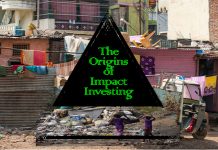A DISPROPORTIONATE 0.02% of Singapore’s 140,000 businesses are responsible for 80% of Singapore’s greenhouse gas emissions.
The rational course of action would be to enforce surgical measures on these 4 companies, with a singular objective of reducing total emissions, something the recently announced carbon tax at Budget 2018 would help deliver.
The carbon tax is an important milestone in Singapore’s Climate Action Plan which aims to reduce emissions.
Behavioural Change
Collectively, the 40 large emitters — dominated by petrochem and energy production — will have to pay out about S$200-250 million a year in carbon tax.
The obvious behavioural change will start when these large emitters opt to make structural changes to curb emissions within their operations rather than pay the National Environment Agency (NEA) the carbon tax.
You Might Also Like To Read:
Kamal Haasan — Poetic In Politics
Setting the price of carbon at $5 per tonne, and with some projection of an increase to $10-15 per tonne in 2023, allows the 40 emitters to make very objective cost benefit analyses in investment in emission reduction programmes.
This is good thing at many levels, and surely one of the desired outcomes of the carbon tax.
Text 1
Whilst its argued that there will be no nett reduction of CO2 as a result of the carbon tax, this will change as operational mindsets change.
Carbon Exchange
The carbon tax jump-starts the demand for about 50 million tonnes of carbon credit offsets. This demand is normally satisfied by purchasing carbon credits, which are supplied by owners of emission reduction projects that create financial instruments out of them. Through the sale of carbon credits, these investments in emission reduction projects can monetise their investments.
You Might Also Like To Read:
The Healthy Way — Long Distance Driving
To facilitate willing buyers and sellers of carbon credits originating in Singapore, a Carbon Exchange platform would be a logical next step.
A ready supply and demand also reduces the risk for the Carbon Exchange, because there will be potentially then, about SGD200-250 million of carbon to be traded locally.
In a very broad way, by administering the carbon tax, the NEA will fill the role of a very rudimentary exchange, as it shuffles revenue from the carbon tax to early adopters to supply carbon credits through grants and other financial incentives.
A major portion of the collected revenue must go into creating Singaporean Carbon Credits through investments in energy efficiency, emissions reduction emission programmes, or low-carbon technology by local businesses.
And while direct reduction remains the primary goal, a secondary and no less important goal is to generate home grown carbon credits.
A healthy supply of carbon credits and a Carbon Exchange will be the two prerequisites to starting a National Carbon Trading System, and subsequently, an international one.
Benefits Of A Carbon Ecosystem
By keeping the carbon credits in circulation in Singapore, a viable and vibrant carbon ecosystem can be created, to encourage more businesses to follow suit. Here are some of the benefits of a carbon ecosystem.
- A new breed of engineers will be required to handle the measurement and verification required for the inaugural implementation on the 40 large emitters.
- A new branch of financial and IT expertise will be needed when the Carbon Exchange goes mainstream.
- New jobs, training and education needs will be generated when carbon know how and knowledge enter the realms of academia.
- New solutions integrators will be required in energy efficiency, renewables, energy storage, and other low-carbon technology options.
Once the basic structure of the carbon ecosystem forms, it’s not difficult to have other sectors like transportation (another big emitter) redressed. The carbon tax is the seed to starting this ecosystem.
The narrative described will only make sense if its unfolds over the next 10 years. If the main stakeholders of policy makers, regulatory implementers, emitters, academia, economists, and industry experts move towards a common plan, or even just a common narrative, carbon will provide a much needed fifth gear to the economy.
The carbon tax is a seed for new growth.
Sam Quek is a chemical engineer and an expert in carbonomics. He is the co-founder and owner of Environmental Solutions (Asia) Pte Ltd and ES Power, which provides carbon-neutral electricity to Singapore business and households.
Main picture: Shutterstock























